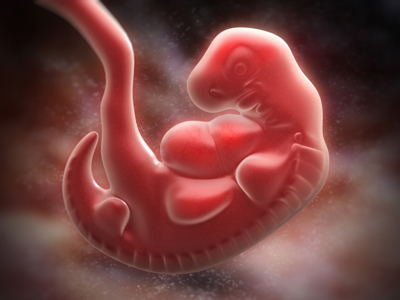
Ask the AI Tutor
Need help with Unit 2 - Genetics? Ask our AI Tutor!
AI Tutor - Lucy
Connecting with Tutor...
Please wait while we establish connection

The technique used to test for genetic disorders is embryo screening.
Unit 2 - Genetics
This GCSE Biology quiz explores genetics, from chromosomes and alleles to inherited characteristics. Test how you understand inheritance patterns, Punnett squares, and key terms in genetic diagrams.
1 .
What are alleles?
Different forms of an organism
Different forms of an animal
Different forms of a gene
Different forms of an enzyme
Alleles are given letters. A different letter of the alphabet is used for each gene. The dominant allele is given an upper case letter e.g. T and the recessive allele is given a lower case letter e.g. t
2 .
Sperm cells carry which of the following chromosomes?
Just an X chromosome
Just a Y chromosome
Neither X nor Y chromosomes
Either X or Y chromosomes
The egg cell contains only the X chromosome so it is the sperm that determines the gender of the offspring
3 .
What is the name of the technique used to test a foetus for genetic disorders?
Embryo screening
IVF
Cloning
Stem cells
Genetic tests are not available for all inherited diseases and sometimes they can give a false positive result
4 .
What offspring ratio would you expect from two parents who are carriers - Tt crossed with Tt?
2:1
3:1
4:1
1:1
Only the offspring that receive the recessive genes from both parents will be unaffected by Huntington's disease
5 .
In humans, genes are found in...
pairs
threes
singly
fours
Genes are always found in pairs. One of the pair was inherited from Mum and the other one of the pair of genes comes from Dad
6 .
If the genes were Tt, this means that the alleles are...
the same
identical
different
increased
You can tell that by the fact that there is a capital letter and also a small letter - genetics are case sensitive!
7 .
For a condition such as Huntington's disease, how many parents need to be affected for the children to inherit this condition?
One
Two
None
Only the grandparents
Huntington's disease is a dominant condition so only one copy of the faulty gene is needed to cause it. Normally, it is only diagnosed in middle-aged people, which means that they have already passed it on to their children. There is a form that affects children but it is very rare
8 .
What is a carrier?
A person who has the disease and always passes it on to their offspring
A person who is unaffected by the disease but can pass on the gene
A person unaffected and incapable of passing on the condition through their genes
A person infected who can spread the disease through a droplet infection
This most commonly occurs with recessive conditions
9 .
In a recessive condition, such as cystic fibrosis, how many copies of the abnormal allele are needed for the person to be a sufferer?
One
Three
Two
Four
Both parents need to be carriers for the child to inherit cystic fibrosis. Parents would be Cc and the child with cystic fibrosis would be cc
10 .
Humans have two sex chromosomes. What are the ones in women known as?
XY
X0
XX
XXY
Chromosomes occur in pairs. Men have an XY chromosome combination
**Unlimited Quizzes Await You! 🚀**
Hey there, quiz champ! 🌟 You've already tackled today's free questions.
Ready for more?
Ready for more?
🔓 Unlock UNLIMITED Quizzes and challenge yourself every day. But that's
not all...
not all...
🔥 As a Subscriber you can join our thrilling "Daily Streak" against other
quizzers. Try to win a coveted spot on our Hall of Fame Page.
quizzers. Try to win a coveted spot on our Hall of Fame Page.
Don't miss out! Join us now and keep the fun rolling. 🎉
**Unlimited Quizzes Await You! 🚀**
Hey there, quiz champ! 🌟 You've already tackled today's free questions. Ready for more?
🔓 Unlock UNLIMITED Quizzes and challenge yourself every day. But that's not all...
🔥 As a Subscriber you can join our thrilling "Daily Streak" against other quizzers. Try to win a coveted spot on our Hall of Fame Page.
Don't miss out! Join us now and keep the fun rolling. 🎉






